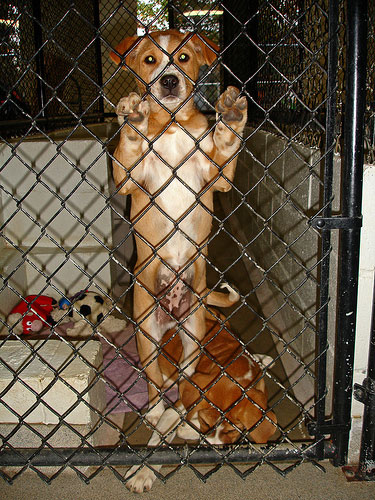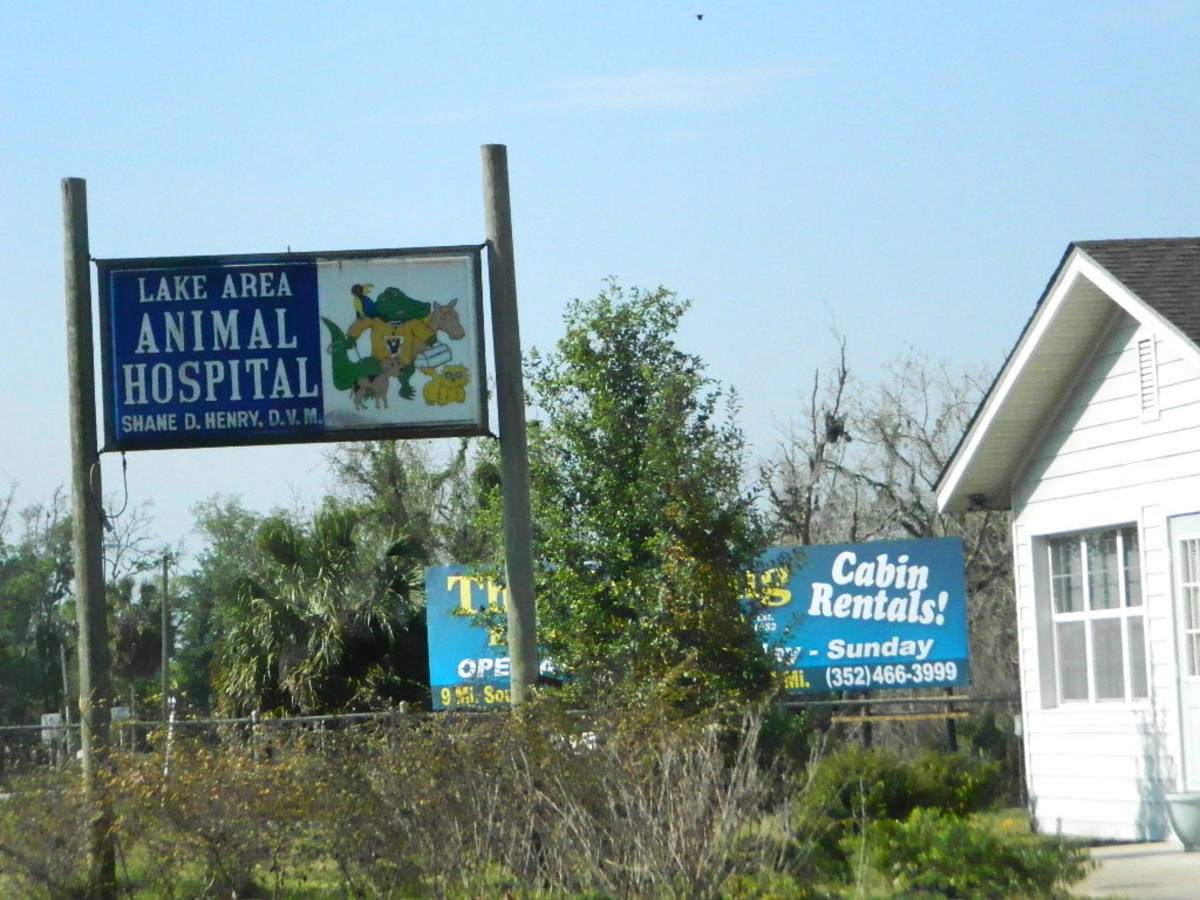Why Should You Adopt a Dog
Dog Adoption
If you're thinking about bringing a dog into your life, you should strongly consider dog adoption. There are so many reasons why you should adopt a dog, but I could only think of a few as to why you should buy a dog.
At first this started as "Should you Adopt or Buy a Dog," but when I got to reasons to buy a dog, I could only think of one or two. Definitely not enough to set a good comparison, so I quickly changed the premise to adopting dogs.
Of course you may have a million reasons as to why you should buy a dog from a breeder and a small handful to adoption, you really should weigh your options before you bring home a new pet.
I will say this one thing about purebred dogs; if you're going to purchase a pure bred dog, please stay away from pet stores. The majority of pet stores get their puppies from puppy mills, which tend to be very unhealthy and prone to health conditions throughout their lives. You may think that you're getting a good dog, but if you look at the pedigree, most puppies from pet stores are severely in-bred, which has the potential to cause severe health conditions and behavioral concerns presently and down the road.
So anyway, below you'll find reasons why you should adopt a dog, and even further down, you'll find dog adoption myths.

Why You Should Adopt
If the feeling you get from saving a dog from a kill-shelter is not enough, you're really saving two lives when you adopt, not just one. When you adopt a dog you save that dog from potentially being euthanized, and at the same time, you free up kennel space for another dog to be brought in.
There are so many other reasons as to why you should adopt a dog.
- When you adopt a dog, you have a better chance of finding the perfect match for your family. Shelter workers tend to have a pretty good grasp on the dog's temperament, so they can help match you and your family with the perfect dog for your personality and your lifestyle. This is a great way to ensure that you don't have to bring the dog back because he just wasn't what you expected.
- Shelter dogs are generally kept up with they're vaccinations, spayed or neutered, and microchipped before or right after you adopt the dog. This helps cut vet bills tremendously. Yes, you have to pay an adoption fee, but that is generally a mere percent of what the shelter actually spent caring for the dog and vet bills, which means it's just a mere percent that you have to pay for something that would have normally cost hundreds.
- Most shelter dogs, depending on their size, are somewhat crate trained. Even the larger dogs in the dog runs are still considered somewhat crate trained, as they'll generally potty on the outside portion of the run. This is a big help when you bring the dog home, as it reduces housetraining time.
- Generally, shelter dogs bond rather quickly and deeply with their new owners. Usually, these dogs are uprooted from a happy home due to divorce, death, or some other lifestyle change, that they do go through a mourning process, so once they've found a loving home again, they want to please the new owners as much as possible to hopefully ensure that they won't be homeless again. Even dogs who were picked up from the streets, never really knowing a good home, will bond quickly to hopefully ensure that they won't be rummaging through the trash for their dinner.
On top of all that, when you adopt a dog from a pet store, you inevitably help reduce the number of puppies at the pet store. Remember those puppies are at minimum 90% puppy mill puppies.
It probably sounds like a stretch reducing the number of pet store puppies by adopting a dog, or puppy, but think about it. Most people adopt pure bred dogs because they're under the impression that the only good dog is a pure bred dog or that pure bred dogs are the only ones worth having, so by adopting a good dog from a shelter, you're decreasing the demand for pure bred pet store puppies, which will in turn eventually help decrease the supply (it's the basic supply and demand concept).
Stories of Rescue Dogs
Tales of Shelter Dogs

Dogs in Animal Shelters
- Pet Finder
Petfinder.com is a great place to find available pets for adoption in your surrounding area. You'll be able to search by age, breed, and gender.
Dog Adoption Myths
Ok some people rely on these myths as excuses to buying dogs from breeders instead of adopting a dog from a shelter.
1. Dogs at shelters are not good pets; if they were, their owners would not have given them up.
If this was the main reason dogs were taken to shelters, there would be thousands of empty shelters across the country. Dogs are commonly taken to shelters because...
- The owner has died
- An irresponsible owner didn't spay or neuter the dog, and found themselves with a litter of puppies that they didn't want, and in many cases the mother is given up with the pups because they'd rather not pay for the spay to prevent future litters. (It's just easier.)
- The dog was in an abusive situation that authorities removed him from.
- The dog was purchased previously adopted by someone who didn't take into consideration the responsibility that is entailed for caring for dogs.
- Someone purchases or adopts a puppy, or dog, to find out that their apartment complex or rental home does not allow pets.
2. Animals pulled from abusive homes will never be good pets because they've been mistreated for so long.
Depending on the extent of the abuse and mistreatment, most dogs will still recover completely- physically and, most important, emotionally- as long as they are given proper care and attention. In actuality, most of these dogs are so grateful to be rescued from their previous situation, that they end up more devoted and loyal than a dog coming from a non-abusive home.
3. You never know what you're getting with a shelter dog.
Although, it's true that you won't know the extent of the medical history or temperament unless the dog's owner gives a detailed report when they drop off the dog, which is typically the case, unless the dog was tied to the shelter door. But, if you think about it, this is no different than getting a puppy from a pet store, unless you buy the pedigree.
4. All shelter dogs are sickly and unhealthy.
It is possible that a shelter dog, or puppy, may have some kind of medical problem, but the majority of dogs in a rescue are perfectly healthy. If the dog is not 100% healthy, shelter workers will generally give you the breakdown of the dog's medical problems or previous medical problems. These people really do care about animals and want to see all animals in good homes, so there's no reason to lie about a medical condition, whereas many pet stores and backyard breeders only care about the money, and will leave out any medical conditions.
Dogs who live in shelters, generally are treated much better than those in pet stores. They're given free-time outside and sometimes training and socialization, whereas pet store dogs do not; they generally live in cramped kennels with their feces which increases risks for health problems.
Most rescues will correct any medical conditions before they even put the dog up for adoption. For example, if a dog comes in with heartworms, the shelter will get treatment, and wait for the dog to fully recover before placing him up for adoption.
5. The only dogs you'll find at shelters are mutts.
Absolutely untrue. Remember that shelters are meant to be safe places for people to surrender their pets in hopes that they find a good home. People do not only return mix breed dogs. You can walk down the runs or kennels of most animal rescues and find a number of pure bred dogs waiting for a good home.











